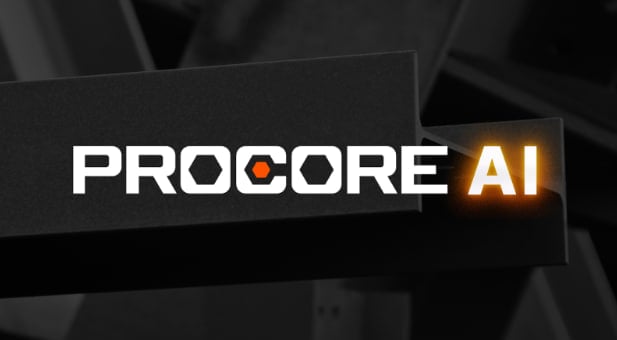When the former chief technology officer of a failed health tech company starts leading product strategy at one of construction’s most well-known software firms, it’s fair to ask a simple question: Will this new wave of artificial intelligence actually work?
That’s the question now hanging over Procore Technologies and its President of Product and Technology, Steve Davis, who once helped steer Babylon Health, the digital-health company that promised to revolutionize clinical operations with AI and then collapsed after regulators, clinicians, and investors lost faith in its claims. Babylon’s downfall left a cautionary legacy: bold talk, limited transparency, and real-world systems that didn’t live up to the hype.
Today, Davis is leading another so-called “AI transformation”, this time in construction. At Groundbreak 2025 in Houston, Procore unveiled new tools built into its Helix intelligence layer, which the company claims will simplify complex workflows, gain project insights and optimize outcomes
The Job-Site Test
The pitch sounds familiar to anyone who has heard Silicon Valley’s promises before: smarter automation, faster insights, seamless productivity. But in construction, the margin for error is small. An AI tool that misreads a safety photo or misclassifies a compliance document doesn’t just create paperwork problems, it can stall inspections, trigger liability disputes, and compromise worker safety.
The stakes are amplified by Procore’s shifting financial picture. Analysts note that Procore’s revenue growth has slowed recently. In fact, Citizens JMP cut its rating for the company citing concerns over shifting sales strategies.
This raises questions about whether the heavy emphasis on AI is as much about reviving investor confidence as it is about delivering verified performance. The timing makes the rollout look less like an organic evolution and more like a high-stakes rebrand.
Innovation or Isolation?
Beyond questions of capability lies a deeper concern: control. Procore’s latest release highlights how users can leverage a collection of pre-built Procore Agents. But can customers integrate external tools to optimize their own data? Recent reporting indicates that Procore is considering locking data inside its platform so that customers become dependent on the technology Davis is now developing.
If Procore limits how firms connect external AI tools or export project data, customers could find themselves unable to apply their preferred analytics or compliance systems. For a global industry that thrives on interoperability between contractors, architects, and owners, that loss of flexibility could be costly.
Davis insists Procore’s AI is aligned with customer needs and built for “secure, scalable innovation.” But those assurances will ring hollow while the lesson from Babylon Health remains instructive: when claims outpace evidence, trust collapses quickly.
Proceed With Caution
AI will reshape construction — that much is inevitable. And the smartest builders won’t reject automation; they’ll insist on proof, interoperability, and the right to control their own data.
Procore’s ambitions reflect both the promise and peril of this new AI moment: a platform led by an executive whose last major experiment with artificial intelligence ended in collapse, now pushing untested algorithms into an industry where mistakes are costly and transparency is thin. And if those same tools end up walling off customer data in the process, construction firms won’t just be betting on Procore’s unproven technology; they’ll be surrendering control of their own.



